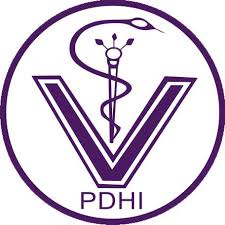Survei Penyakit Porcine Reproductive and Respiratory Syndrome pada Peternakan Babi di Bali (SEROLOGICAL SURVEILLANCE OF PORCINE REPRODUCTIVE AND RESPIRATORY SYNDROME IN PIGGERIES IN BALI)
Abstract
This study aimed to determine the presence and burden of Porcine Respiration and ReproductiveSyndrome (PRRS) virus in pig farms in Bali. A total of 305 sera samples were collected from 10 intensivepig farms and backyard piggeries located in eight districts, in Bali. The PRRS antibody and the virus wasdetected using enzyme linked immunosorbent assay (ELISA) and transverse reverse polymerase chainreaction (RT-PCR), respectively. The results showed that, generally the average percentage of positiveswine anti-PRRS antibody was 13.4%, 14.3%, and 11.7% in the backyard farms and commercial farms,respectively. Whereas, the detection rate of PRRS virus was 8.9% (15.3% and 5.6% in the backyard farmand commercial farms, respectively). It was concluded that PRRS virus is endemic in pigs, in Bali.Vaccination, management, biosafety, and quarantine should be implemented to prevent the economicloss due to PRRS.Downloads
Download data is not yet available.
Published
2013-08-18
How to Cite
SUARTHA, I Nyoman et al.
Survei Penyakit Porcine Reproductive and Respiratory Syndrome pada Peternakan Babi di Bali (SEROLOGICAL SURVEILLANCE OF PORCINE REPRODUCTIVE AND RESPIRATORY SYNDROME IN PIGGERIES IN BALI).
Jurnal Veteriner, [S.l.], v. 14, n. 1, p. 24-30, aug. 2013.
ISSN 2477-5665.
Available at: <https://ojs.unud.ac.id/index.php/jvet/article/view/6215>. Date accessed: 05 feb. 2026.
Issue
Section
Articles
Keywords
porcine reproductive and respiratory syndrome , pig, Bali, Elisa, RT-PCR


















